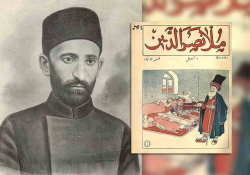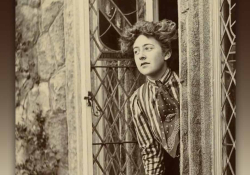Ten Translations (and Counting) of Pioneer Summer: Approaches and Techniques

Pioneer Summer, also referred to in English as “Summer in a Pioneer Necktie,” is a queer romance written in Russian in 2016 by Ukrainian author Kateryna Sylvanova and Russian author Elena Malisova, who were both living in Russia at the time. This romantic tale of two boys aged sixteen and eighteen falling in love at camp in late Soviet-era Ukraine was a surprise bestseller in Russia in 2021 but also prompted a renewed wave of government crackdowns against LGBTQ+ people at the end of 2022. The authors got so many threats that they left the country, and the book itself is now banned in Russia, as are all representations of LGBTQ+ relationships.[i]
As of August 2025, Pioneer Summer has been or will soon be published in US English, French, German, Italian, Japanese, Polish, Brazilian Portuguese and Continental Portuguese, Continental Spanish, and Turkish. I’m the translator of the US English version, and I hope that translations of Pioneer Summer and the rest of the trilogy will be taught in high school and college classes and chosen for reading groups and book clubs around the world. With this in mind, I wanted to introduce readers to some of the choices and challenges facing the book’s translators.
Given the book’s genre of queer romance and/or boys’ love, some readers might expect translations of Pioneer Summer to focus on plot and character over the specifics of cultural context. But given the book’s impact on Russian society, other readers might expect translations of Pioneer Summer to convey as much cultural context as possible, so readers can better understand why the book caused such a furor. As a result, there is some tension for the producers of the book (which include not just the translator but also the editors, copyeditors, proofreaders, and illustrators) as they strive to balance these opposing impulses.
But what do these decisions about whether, and how, to retain culturally specific material actually look like? Below I’ll discuss seven examples of the kinds of things that translators (and their editors) have to make decisions about, using the Russian original and the English, French, German, Italian, Polish, and Brazilian Portuguese translations.[ii] (I don’t have access to the other translations.) The first example on this list—although it is often one of the last decisions made!—is how to translate the book’s title.
Example 1. The title
Direct translation of original Russian title: Summer in [a/the] Pioneer necktie
The French and Portuguese titles follow the original title’s basic formula, but substitute “red” for “Pioneer”; presumably the well-known Soviet connotation of the color red was deemed to resonate better with readers than the less well-known Soviet concept of the Pioneers. The Polish and Italian titles, on the other hand, follow the original title exactly, retaining the “Pioneer” concept; perhaps, given Poland’s and Italy’s twentieth-century histories, Polish and Italian readers were thought to be more familiar with the Pioneers. As for the English title, Pioneer Summer: I can’t talk about the English titles of the second and third books in the trilogy yet, since they are still forthcoming, but the reason for avoiding an exact rendering of the original title in favor of the more impressionistic “Pioneer Summer” should be evident once the second and third books come out in English translation.
Out of the translations I can access, the title that diverges the most from the original is the German one, “You and I and the summer.” This title adds a second-person address, heightening the emotive affect, while jettisoning all the other title components except “summer.” These changes may seem drastic, but such title transformations are nothing new in the international book market, especially when they’re used to create a formula that can be repeated across all books in the series, as it is in German, where the second and third books are called Du und ich und die Schwalben [“You and I and the swallow”] and Du und ich und für Immer [“You and I and forever”].
Russian | Лето в пионерском галстуке [Leto v pionerskom galstuke (Summer in a Pioneer Necktie)] |
English | Pioneer Summer |
French | Un été en foulard rouge |
German | Du und ich und der Sommer |
Italian | Un’estate col fazzoletto da pionieri |
Polish | Lato w pionierskiej chuście |
Portuguese | Verão de lenço vermelho |
Example 2: Humorous and idiosyncratic descriptions (these aren’t culturally specific items, really, but I’ll discuss them anyway)
Direct translation of original Russian passage: And he [Matveyev] was horrifically effective. “Horrifically” because Matveyev was one of those people who can drown fish. Therefore every person at camp thought and pondered very, very hard before giving him a task.
Both wordplay-based humor and idiosyncratic constructions require careful treatment. Often they need adaptation or substitution to land properly in translation. In this example, the hapless young camper Alyosha Matveyev is described in the Russian with an adverb, ужасающе [uzhasayushche (horrifically, horrendously)], that does not collocate with its adjective, деятельный [deyatelnyi (effective, expeditious, efficient)]. Not only does it not collocate with it, it actively clashes with it. The clash of the adverb’s negative valence and the adjective’s positive valence generates humor, and the coauthors make sure readers catch the joke by explaining it: “‘Horrifically’ because [etc.].” This joking adverb-adjective clash is easy to reproduce in translation, and it is reproduced in all the translations I examined. The explicit gesture toward the joke (“‘Horrifically’ because…”) is also easy to reproduce, and it is reproduced in all the translations except the German one.
What kind of person is a person who can drown fish?
In fact, the explanation of the joke is the most interesting part. The coauthors’ explanation of why Matveyev’s industry is “horrifically” (or “scarily” or “overly” etc.) effective reads: “‘Horrifically’ because Matveyev was one of those people who can drown fish.” But what does that mean? What kind of person is a person who can drown fish? The image is the authors’ own idiosyncratic creation, not a set Russian idiom, so there is some wiggle room for translators’ interpretations. It’s interesting to see who does what. The Polish and Portuguese are the only translations to simply render the original directly, saying that Matveyev “could drown/was capable of drowning a fish” and letting readers figure it out. In my English rendering, I thought it important to emphasize that nobody wanted his help, so I created an image that underscored how damaging his help was: “five minutes of his help was worse than an hour of anyone else’s hindrance.” The Italian also comes up with a creative substitution: he “couldn’t calm down without a sedative.” The French paraphrases, saying that he “always did too much, always did extra,” while the German also paraphrases, but with the opposite interpretation of Matveyev’s failing: he “ultimately couldn’t get anything done.”
We can also compare how various translations zhuzh up the last sentence, about everyone having to weigh the pros and cons (which is exactly what the French uses) before giving Matveyev a task. In my English translation, I took the liberty of adding “even the smallest” in order to intensify the impact, a liberty I thought justified due to the original Russian’s use of repetition to create intensity (“very, very” and “thought and pondered”). The Portuguese deploys repetition, no liberties needed: people had to think “very hard, that is, really very hard.” It’s fascinating to note how other languages stack up the number of times people should think about it before giving Matveyev a task: German thinks about it twice, Italian three times, and Polish five times.
Russian | И ужасающе деятельным. «Ужасающе» потому, что Матвеев был из разряда тех людей, которые могут утопить рыбу. Поэтому каждый человек в лагере, прежде чем дать ему задание, очень и очень хорошо думал и взвешивал. |
English | And he was devastatingly industrious—“devastatingly” because five minutes of his help was worse than an hour of anyone else’s hindrance. As a result, Yurka quickly came to learn why everyone at camp thought long and hard before giving him even the smallest assignment. |
French | Et horriblement actif. Horriblement, parce qu’il en faisait toujours trop, toujours plus. C’est pourquoi tout le monde, dans le camp, pesait mûrement le pour et le contre avant de lui confier une mission. |
German | Aljoscha […] war erschreckend aktiv, aber der Typ Mensch, der schlussendlich nichts fertigbrachte. Daher dachte man zweimal nach, bevor man ihm eine Aufgabe übertrug. |
Italian | Purtroppo, non stava fermo un secondo. “Purtroppo”, perché Matveev apparteneva a quella categoria di persona che non riesci a calmerà nemmeno coi sedativi. Perciò chiunque, prima di affidargli un incarico, ci pensava su tre volte. |
Polish | I przerażająco aktywny. „Przerażająco”, ponieważ należał do tej kategorii ludzi, którzy byliby w stanie utopić rybę. Dlatego wszyscy w obozie zastanawiali się pięć razy przed powierzeniem mu jakiegokolwiek zadania. |
Portuguese | E era devastadoramente proativo. «Devastadoramente», porque Matvéiev era o tipo de pessoa capaz de afogar um peixe. Por isso, qualquer pessoa no acampamento ponderava muito bem, mas mesmo muito bem, antes de lhe atribuir uma tarefa. |
Example 3. Pop culture references: “Maria Ivanovna”
Direct translation of original Russian passage:
“Well/Aw/What a Mar’ Ivann…” he said slowly, without turning around.
“What did you say?”
With a quiet snap Yurka broke off the branch of lilac with the biggest, most luxurious flowers. He turned around and held it out to the troop leader:
“I’m admiring the little flowers. Here, Ira Petrovna, this is for you!”
Yurka was the only person who called her by her first name and patronymic as a matter of principle, never guessing that it really offended Ira.
[A page or so later, in the same scene]
“Are you sure you understand everything?”
“I’m sure, Mar’iva … Oops, dang it … Yes I’m sure, Ira Petrovna!” Yurka clicked his nonexistent [boot] heels together.
I had to ask the authors what was going on here, since I didn’t understand the reference. They explained to me that the female first name and patronymic Maria Ivanovna—or, if said quickly, “MaryaIvanna,” or even, as in the Russian text, “Mar’Ivann”—indicates a stereotypical draconian, hidebound teacher. So, when Yurka jokes, exasperated, that Ira Petrovna is a Maria Ivanovna, he’s criticizing her by comparing her to a harsh, pedantic schoolmistress. (An analogous insult would be if a kid in an American book called a man Homer Simpson to imply that the man is lazy and stupid.) This Russian-language association of specific name with specific stereotype does not transfer to other languages, of course, so now the translator has to decide: Is the effort worth the payout? That is, is the effort of conveying Yurka’s little joking insult worth weighing down the text with the necessary explanation? And if so, then how should the joke be explained? We see an interesting array of answers to this question.
The translator has to decide: Is the effort worth the payout?
I added a stealth gloss in my English to explain the Maria Ivanovna reference and how it is supposed to function as an exasperated insult: “His little joke of calling her Marya Ivanovna, the archetypal stern schoolteacher name, had backfired.”[iii] The French uses a footnote to explain the reference. The German omits the reference. The Polish version has Yurka call Ira Petrovna “Professor,” which is a clever way of manifesting the essence of the insult—that Ira Petrovna is supposedly stern and pedantic. When Yurka calls Ira Petrovna “Professor” instead of “Mar’ Ivann,” what we’re seeing is the translator’s tool of hypernym/hyponym substitution, but transposed into the plane of culture: a hypernym (a broad, universal concept like the strict professor) is substituted for a hyponym (a narrow, culturally specific subcategory of strict pedagogue).[iv] The Portuguese has Yurka curse under his breath, which is, I would argue, an inspired substitution, since the cursing makes Ira Petrova as indignant in the translation as calling her Maria Ivanovna makes her in the original. It also works from a character perspective, since we know from other parts of the book that Yurka the hothead sometimes has difficulty keeping his language PG. So, although the specific insult to Ira Petrovna—that she’s strict and pedantic—is lost, a richness of characterization is gained.
All of these methods—stealth gloss, footnote, omission, substitution—are normal ways to deal with culturally specific material, and each method has its own set of pros and cons. The one translation decision I couldn’t parse is the Italian one, where Yurka calls Ira Petrovna “Maria Juan” instead of “Maria Ivanovna = Mar’Ivann.” I’m no expert on Italian culture, so I checked with a native speaker informant, who confirmed my suspicion that there is no special archetype or significance attached to the name “Maria Juan” in Italian. But where did the “Juan” come from? Perhaps the chain of thought was that “Ivann” equals “Ivan” which equals “Giovanni”—the Italian version of Ivan/John—and then “Juan” is a sort of nickname version or short form of “Giovanni”? But even so, why would a woman have a man’s nickname after her own first name? I think the simpler explanation is that this is a little translator misfire, which happens to the best of us. Or perhaps an editor or proofreader went in and added it. Or perhaps the reasoning is explained in a note at the end of the book, which I didn’t have access to since I only had the first few chapters. … The mystery deepens. Or, as my son used to say back when he was in kindergarten, “The mystery depends.”
Russian | — Ну Марь Иванн … — протянул он, не поворачиваясь. — Что ты сказал? С тихим треском Юрка отломил ветку сирени с самым большим и пышным соцветием. Развернулся, протянул вожатой: — Цветочками любуюсь. Вот, Ира Петровна, это вам! Юрка был единственным, кто принципиально называл ее по имени и отчеству, не догадываясь о том, что Иру это очень обижало. [A page or so later, in the same scene] — Точно все понятно? — Точно, Марьива … Тьфу ты … Так точно, Ира Петровна! — Юрка щелкнул отсутствующими каблуками. |
English | “Aw, MarIvanna…,” he began pleadingly, without turning around. “What did you say?” His little joke of calling her Marya Ivanovna, the archetypal stern schoolteacher name, had backfired. With a small crack Yurka broke off the lilac branch that had the biggest, most luxurious bunch of flowers. He turned around and held it out to the troop leader with a flourish. “I’m enjoying the flowers. Here, Ira Petrovna, this is for you!” [A page or so later, in the same scene] “Are you sure you’ve got it?” “Yes, Marya Iva—dang it! Yes, ma’am, Ira Petrovna, ma’am!” Yurka drew himself up and clicked the heels of his nonexistent boots together. He was the only one who addressed her formally, using her patronymic as well as her first name, utterly clueless that doing this really hurt her feelings. |
French | —Mais, Maria Ivan6 … dit-il d’une voix traînante sans se retourner. —Qu’est-ce que tu viens de dire? Délicatement, il cassa une branche couverte de fleurs grandes et belles, se tourna et la lui tendit. —J’admire les fleurs. Voilà pour vous, Ira Petrovna! Iourka était le seul à appeler Irina par ses prénom et patronyme7, par principe. Ce qu’il ne savait pas, c’est que cela la vexait terriblement. [A page or so later, in the same scene] —Tu as bien compris? —À vos ordres, Maria Iva … Flûte, tu … À vos ordres, Ira Petrovna! Puis il claqua des talons … sauf qu’il n’en portait pas. 6. Les prénom et patronyme “Maria Ivanovna” sont employés pour représenter l’archétype de l’enseignante russe. 7. Le patronyme est le prénom du père assorti d’un suffixe, il s’intercale entre le prénom et le nom de famille. Appeler quelqu’un par ses prénom et patronyme est us signe de respect mais aussi de distance. |
| German | Er brach einen Fliederzweig ab und reichte ihn der Gruppenleiterin. »Ich bestaune die Blüten. Hier, Irina Petrowna, für Sie.« Jura war der Einzige, der sie aus Respektgründen siezte. [A page or so later, in the same scene] »Ist wirklich alles klar?« »Zu Befehl!« Jura streckte sich und machte den Pioniergruß. |
Italian | «Oh Maria Juan» cantilenò, senza voltarsi. «Cos’hai detto?!» Jura spezzò con dolcezza il ramo con il fiore più grande e rigoglioso. Si girò e lo allungò alla ragazza: «Contemplo i fiori. Questo è per Lei, Ira Petrovna!» Jura era l’unico a chiamarla con il nome – abbreviato – e il patronimico. Era un questione di principio, ma non si rendeva conto che per Irina era piuttosto offensivo. [A page or so later, in the same scene] «Sicuro?» «Sicuro, Maria Juan … Ehm, sicurissimo, Ira Petrovna!» e batté i tacchi sull’attenti. |
Polish | – No, pani profes … – wydusił z siebie, nie odwracając się. – Coś ty powiedział? Rozległo się ciche trzaśnięcie. Jurka oderwał gałązkę bzu z największymi i najbujniejszymi kwiatami. Odwrócił się i wyciągnął ją w stronę zastępowej: – Delektuję się kwiatami. Irino Pietrowna, to dla was! Jurka był jedyną osobą, która konsekwentnie zwracała się do niej formalnie, używając imienia i otczestwa**, nie zdając sobie sprawy z tego, że Irę bardzo to raziło. [A page or so later, in the same scene] – Czy na pewno wszystko jasne? – Jasne, pani profes … Tfu! Tak, wszystko jasne, Iro Pietrowna! – Jurka udał, że strzela obcasami. ** W języku rosyjskim wobec starszych czy przełożonych używa się grzecznościowej formy złożonej z imienia i otczestwa, czyli imienia odojcowskiego (przyp. tłum.). |
Portuguese | —Mas que porcaria … —resmungou ele. —O que foi que disseste? Com um estalido baixinho, Iurka arrancou o ramo mais florido do lilas. Voltando-se para a monitora, disse-lhe de modo orgulhoso: —Eu estava só a apreciar as flores. Olha, são para ti, Ira Petróvna! Iurka era o único que a chamava assim, com o nome e o patronímico. Nem desconfiava que isso a deixava profundamente chateada, pois Irina tentava sempre adotar uma postura mais informal com todos os pioneiros. [A page or so later, in the same scene] —Entendeste mesmo tudo? —Entendi, raios … Quer dizer, entendi tudo Ira Petróvna! — E, com isto, Iurka juntou os calcanhares como se batesse uma continência. |
Example 4. Mode of address: First name and patronymic
This translation challenge occurs in the same passage used in example 3.
The challenge is in the sentence “Yurka was the only person who called her by her first name and patronymic as a matter of principle, never guessing that it really offended Ira.” The problem is that readers from other cultures probably won’t know that in Russian, the first name and patronymic are used in the formal mode of address, and so it’s hurtful to her when he uses that mode of address with her, since she wants to be on a more friendly, informal standing with the campers in her troop—especially him, since she’s known him for years. In my English translation, I moved the sentence about this down to the second time he calls his troop leader “Mar’Ivann,” since it seemed to flow better there, but more importantly, I rejiggered the original a bit in my rendering, which reads: “He was the only one who addressed her formally, using her patronymic as well as her first name, utterly clueless that doing this really hurt her feelings.” By removing “as a matter of principle,” adding “formally,” and adding context about the patronymic, I foreground the important information: the emotional effect of his use of the formal mode of address. (I also put my thumb on the scale by saying “utterly clueless that” instead of “never guessing that” since, well, this is Yurka, and he’s utterly clueless about a lot of things!)
Other translations dealt with this first-name-and-patronymic problem differently. The French and Polish reproduce the Russian but add explanatory footnotes. The German omits any mention of first name and patronymic, substituting instead the familiar German concept of the formal Sie and explaining, “Yura was the only one who said Sie to her, out of respect.” The Italian basically replicates the original Russian, letting readers glean why it’s hurtful from context, but it does something that I thought very interesting: it notes that “Ira” is a nickname, not a full first name.[v] The Portuguese probably does the most direct job of conveying the nature of Ira Petrovna’s hurt feelings by glossing it: “he had no idea this made her profoundly upset, since Irina always tried to have a more informal standing with all the Pioneers.”
Example 5: Clicking nonexistent bootheels together
This translation challenge occurs in the same passage used in example 3.
This translation challenge is about how to render Yurka’s little gesture of subservience at the end of the passage: “Yurka clicked his nonexistent [boot] heels together.” He performs this quasimilitary gesture to demonstrate that he has heard Ira Petrovna’s order and will obey, and also to get in another little dig about her being a harsh taskmistress. For a gesture we might consider fairly universal and unproblematic (there’s nothing really culturally specific about clicking together bootheels as a way of signaling that a superior’s order is accepted), there are a lot of variations on this theme. I suggest that the challenge here isn’t actually the gesture itself but the little whiff of narrative irony inherent in the situation: sarcastic faux-subservience indicated by the clicking of nonexistent bootheels. Are translators (or their editors) going to find the same humor in the image of nonexistent heels clicking together, or are they going to want to massage the image into something more typical?
For a gesture we might consider fairly universal and unproblematic, there are a lot of variations on this theme.
The French translator and I replicate the image as is. The German omits the foot gesture and substitutes a hand gesture: “Yura stood up straight and gave the Pioneer salute.” This choice is effective in conveying the sarcasm, but why the change? Perhaps there is an established connotation or association in Germanic cultures with the act of clicking bootheels together that was inappropriate for this scene? The Italian, on the other hand, removes the word “nonexistent”: he simply “clicked his heels to attention.” Without that “nonexistent,” the sarcasm of the gesture is much diminished. The Polish and Portuguese deal with the image by paraphrasing it: the Polish says he “pretended to click his heels,” the Portuguese that “he brought his heels together as though in a salute.” Well, so what? Is there such a difference between saying someone “clicked their nonexistent bootheels” and saying that someone “pretended to click their bootheels”? I would argue there is; the latter describes behavior, while the former lends a sassy, back-talky flavor to that behavior. And nothing says “young Yurka Konev” like sass and back talk.
Example 6. Historical figures
Direct translation of original Russian passage: “You’re going to sweep floors your whole life! Shame on you for disgracing such a last name!”
All the readers of the Russian-language original could be assumed to know that the character Yura Konev has the same last name as a famous Soviet army general in World War II, Ivan Konev. But readers of a translation can’t be assumed to know that. So, when Olga Leonidovna tells Yurka he’s an insult to his name, is this an important enough insult to keep? And if so, does that crucial cultural information need to be conveyed or explained, or is the context enough for readers to figure it out? The French and Italian do not see the need for any explanation, both reproducing the Russian as is. The Polish reproduces the Russian but adds an explanatory footnote. The German adds a stealth gloss in Olga Leonidovna’s dialogue, which certainly tracks for her character: “How dare you drag the last name of the Soviet hero Ivan Konev through the muck like that by your behavior?” I also added a stealth gloss, but I did it by adding a reaction from Yurka after her scolding: “Yura flushed; it wasn’t his fault he had the same name as the great general Ivan Konev.” This response seemed in character for him, since he spends much of the book feeling guilty of/about one thing or another. The Portuguese does the same thing but also explains why General Konev is famous: “It wasn’t his fault he happened to have the same last name as the ‘great’ general Ivan Konev, who won several World War II battles.”[vi]
Also look at the small adjustments translators made in the immediately preceding insult, where Olga Leonidovna sneeringly predicts Yurka will sweep floors his whole life. Apparently this janitorial image worked in English and Polish but didn’t convey the right amount of scorn in French (which changed it to “you’ll pick up trash”) or in Portuguese, German, and Italian (which changed it to “you’ll mop floors”).
Russian | — Всю жизнь будешь полы мести! И как тебе не стыдно такую фамилию позорить? |
English | “You’re going to end up sweeping floors your whole life! You should be ashamed of yourself for disgracing your name!” Yura flushed; it wasn’t his fault he had the same name as the great general Ivan Konev. |
French | —Tu passeras ta vie à ramasser des ordures! En plus de faire honte à ton nom! |
German | »Du wirst dein ganzes Leben Böden wischen. Wie kannst du es wagen, den Familiennamen des sowjetischen Helden Iwan Konew durch dein Verhalten derartig in den Dreck zu ziehen?« |
Italian | «Laverai i pavimenti per tutta la vita! Non ti vergogni di infangare così il tuo cognome?» |
Polish | – Do końca życia będziesz podłogi zamiatał! Jak ci nie wstyd hańbić takie nazwisko***? *** Takie nazwisko nosił marszałek Iwan Koniew (1897–1973), słynny radziecki dowódca z czasów II wojny światowej (przyp. tłum.). |
Portuguese | —O teu futuro vai ser lavar o chão para o resto da tua vida! Não tens vergonha de manchar assim o nome da tua família? Iurka ficou vermelho. Não tinha culpa de ter, por acaso, o mesmo apelido do «grande» general Ivan Kóniev, que vencera várias batalhas na Segunda Guerra. |
Example 7. Buses and children
Direct translation of original Russian passage: How fun it was, to roll along in the column of identical LiAZes, white with a red stripe, with signs [saying] “Children” and flags.
This last instance is very small, but it is an example of the kinds of back and forth that characterize even small decisions. When Yurka is remembering the “good old days” when he loved to ride the special Pioneer buses to camp, he mentions that the buses had a sign on them saying CHILDREN. My editor, Abby, suggested removing this as an unnecessary detail in a sentence that was already quite detail-heavy—I had already expanded an acronym from LiAZ to Likinsky Bus Plant, added the word “buses,” and then added “iconic” to signal that these buses conjure up nostalgic associations for Yurka, the same way a yellow school bus might for someone who’d ridden them as a child in the US.
That added a lot of weight to this short sentence. Normally I might have agreed with Abby’s idea, which was to compensate for adding detail in one spot (all the explanations about the LiAZ buses) by removing detail in another spot (the signs saying CHILDREN). But I suddenly found myself making an impassioned plea to keep the sign, because it reminded me of what I had seen recently in the news as I followed Russia’s war on Ukraine: that the Russian military had deliberately targeted Ukrainian buildings and vehicles prominently displaying signs reading CHILDREN. For that echo alone, I felt, it was worth retaining the signs in the book. So we did.
Other translations of this passage are fairly straightforward, with only the French version shifting the sign toward something more reminiscent of the contemporary American “Baby on Board.” As for the LiAZes, the French adds a footnote to explain what it is (although without, to my mind, addressing why that particular type of bus is significant). The German remains very close to the Russian, simply adding “buses” after the acronym LiAZ. The Italian, Polish, and Portuguese omit the word LiAZ, perhaps judging that the effort of trying to evoke the nostalgia for that particular kind of bus will have a low ROI.
Russian | Как это было весело — катить в составе колонны одинаковых белых в красную полоску «ЛИАЗов» с табличками «Дети» и флажками. |
English | It had been so much fun that first summer, riding in a column of identical, iconic Likinsky Bus Plant buses, white with their red stripe and decked out with flags and traditional signs indicating there were children on board. |
French | Quel bonheur de faire le trajet dans un autobus LiAZ2 à bandes blanches et rouges orné de fanions et de la pancarte „Enfants à bord“! 2. LiAZ est une entreprise spécialisée dans le construction d’autobus. |
German | Wie viel Freude es gemacht hatte, inmitten einer Kolonne weiß-rot gestreifter LiAZ-Busse, mit der Aufschrift Kinder und mit Wimpeln verziert, auf großer Fahrt zu sein […]. |
Italian | Quanto era divertente viaggiare tutti in colonna, su uno degli autobus bianchi e rossi con la scritta BAMBINI e le bandierine. |
Polish | Ale to była frajda – jechać w kolumnie jednakowych autobusów, białych w czerwone paski, oznakowanych tabliczkami „DZIECI” i proporczykami. |
Portuguese | Como era divertido andar por entre aquelas filas de autocarros de longo percurso idênticos, brancos e com uma risca vermelha, com bandeirinhas e um letreiro que dizia «CRIANÇAS»—[…]. |
In conversation, authors Elena Malisova and Kateryna Sylvanova have described Yurka and Volodya’s story as warm, bright, and moving, and one that fights homophobia. They also have expressed the hope that the book will feel the same way for readers of the translation. I hope, in turn, that my discussion has stirred some interest in, and appreciation of, the ways translators negotiate the challenge of conveying cultural context—which is part of what makes this text so warm and bright for readers of the original—in ways that make it feel familiar and moving for readers of the translation, too.[vii]
My survey here is not about trying to judge my fellow translators’ work; I’ve got beams aplenty in my own eye(s), so there’s no need to go poking around my talented and hard-working colleagues’ eyes in search of motes.[viii] Rather, my aim is to give readers who don’t often think about translation a better understanding of what translators have to take into account when deciding how to translate a specific image or phrase, and how many different ways there are to approach this task.
West Lafayette, Indiana
[i] For more on the story behind Pioneer Summer, you can read a guest essay in the New York Times by Elisabeth Schimpfössl and Felix Sandalov (2022); Sophia Nguyen’s interview with authors Kateryna Sylvanova and Elena Malisova in the Washington Post (2025); Brendan Dowling’s interview with the authors and with translator Anne O. Fisher in Public Libraries Online (2025); and, most recently, Ed Nawotka’s article in Publishers Weekly (2025) about the continuing backlash in Russia against Pioneer Summer and LGBTQ+ stories and people in general. For a look at where Russian anti-LGBTQ+ legislation stands today, see this Meduza article from June 2025.
[ii] The editions I consulted for this essay are: Лето в пионерском галстуке, Катерина Сильванова и Елена Малисова (Popcorn Books, 2021); Pioneer Summer, trans. Anne O. Fisher (Abrams Books, 2025); Un été en foulard rouge, trans. Laurence Foulon (Pocket Jeunesse, 2025); Du und ich und der Sommer, trans. Olga Tomyuk (Blanvalet, 2024); Un'estate col fazzoletto da pionieri, trans. Giulia De Florio (Mondadori, 2024); Lato w pionierskiej chuście, trans. Michał Kołakowski (Insignis, 2023); Verão de lenço vermelho, trans. Yuri Martins de Oliveira (Seguinte, 2024).
[iii] A stealth gloss is where the translator tucks in an explanatory phrase or two, so that something that would be clear to readers of the source text is (at least more) clear to readers of the translation too. The benefit of this method is that readers gain understanding without being jolted out of the reading experience. Read Susan Bernofsky’s excellent description of it in her Words Without Borders interview here.
[iv] Less elegantly, you could also see it as an example of substitution, where a familiar reference is subbed in for an unfamiliar one.
[v] Perhaps to subtly signal the translator’s awareness that the combination of “Nickname + Patronymic” is an unusual formula, compared to the usual “Full First Name + Patronymic.”
[vi] I also see the quotation marks around the word “great”; are they nondiegetic (to borrow a term from film studies), reflecting an irony external to the narrative? Or are they diegetic, reflecting Yurka’s scoffing attitude toward his illustrious namesake? It could be either, or both—especially now, after the full-scale Russian invasion of Ukraine in 2022 has indicated a need to go back and reexamine the history and legacy of the Soviet armed forces, particularly the power dynamic between the Russian republic and the other republics of the USSR.
[vii] Notable in this sense is the effort made by the Portuguese edition, which includes several introductory paratexts: a trigger warning, a content note, a translator’s note, an extensive list of characters—including variants of each character’s name—and a program and cast list for the play-within-the-novel.
[viii] Especially since not all translation choices can be attributed to translators; some translation contracts stipulate that editors or copyeditors can change the translator’s work without the translator’s approval. Also, my brief study is based on just the free ebook samples available online, which usually include only the front matter plus the first two or three chapters, so there may be explanations in the book’s back matter, or compensations appearing elsewhere in the book, of which I am unaware.
Editorial note: Julie Cassiday’s review of Pioneer Summer appears in the September 2025 issue of WLT.















